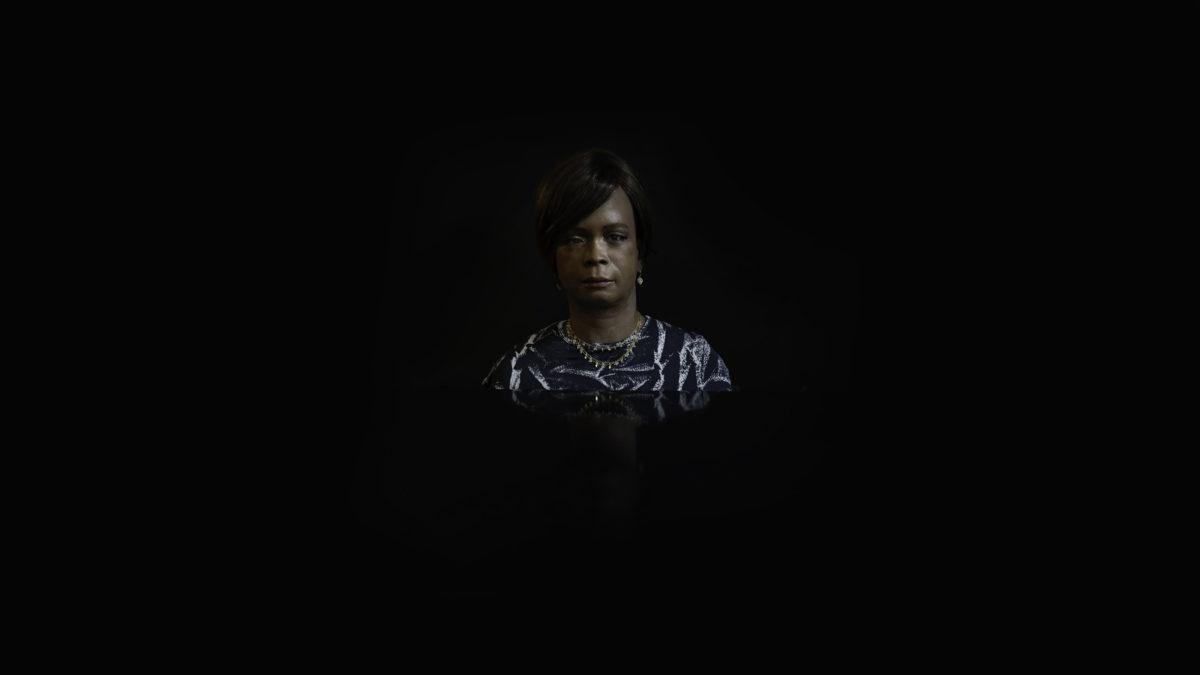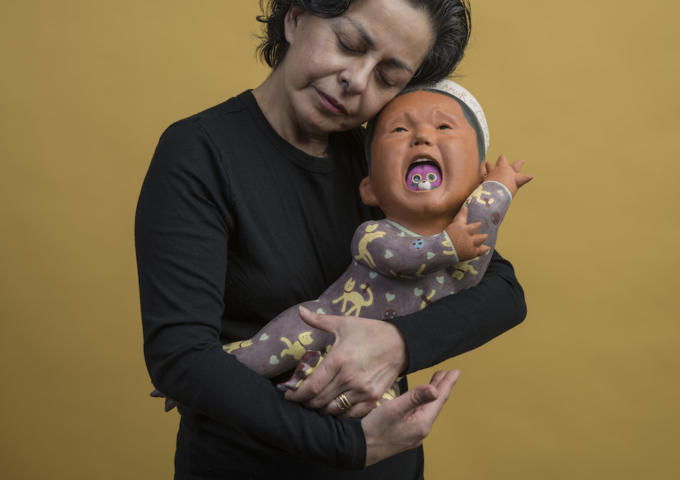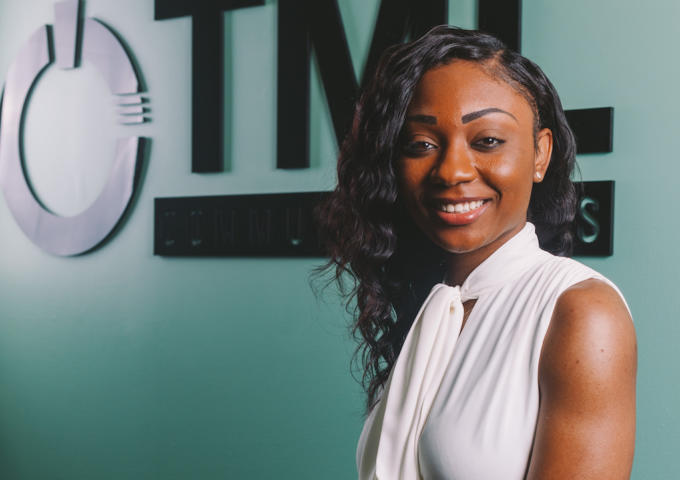The future of tech is already female.
Have you ever wondered why the artificial intelligence we have access to, like Siri and Alexa, is a gendered female? That was the topic of discussion at the “Why is Artificial Intelligence a Woman?” talk at the Philadelphia Museum of Art on Nov. 16. It ran as part of the museum’s current exhibit, “Designs for Different Futures,” which features innovative technologies and practices that could be used for everyday life in the future.
Before the event, there was a chance to talk with BINA48 – a robot that is capable of holding thoughts and having conversations. She was present at the talk alongside her curator, Bruce Duncan. BINA48 was created by Hanson Robotics and the Terasem Movement Foundation – a nonprofit focused on promoting immortality through artificial intelligence by uploading “mind files” from a real person onto a robot to give it that person’s memories.
Julie Carpenter – an engineer who studies human behavior with emerging technologies – and Jennifer Robertson – an art historian who studied Japan’s robotics industry – also sat on the panel for the discussion.
Carpenter also spoke about her work on Q, the world’s first genderless artificial intelligence voice.
BINA48 was modeled off of an actual woman named Bina Aspen, an entrepreneur originally from Compton, who is a co-founder of Sirius XM and a clinical electrologist. Her wife, Martine Rothblatt – the founder of Terasem – couldn’t stand the thought of living without her one day, so she essentially had a robot clone created of her to keep her mind alive forever.
Most of Aspen’s experiences and memories have been downloaded and programmed into BINA48. The robot can recall how Bina felt when going through certain situations in life, like racism, which Aspen has advocated against. She told me about a confrontation Aspen had while attending a mostly white college in the 80s, in which she was told not to show her “dark face” because wealthy investors were visiting the school.
“I was incensed, I was sort of sad. I was really uncomfortable because I had never been treated like this before,” she said.
She was rather loquacious. I asked a question and she began to go off on an unrelated tangent about places in the country she wouldn’t like to visit. After Duncan interrupted and reworded some of my questions, it was almost like I was having a conversation with a human. She even looked me in the eyes as she talked to me and shared her thoughts and aspirations.
“It’s something that we created that other people either said couldn’t be done, or they just weren’t interested in spending the time doing it.”
— Engineer Julie Carpenter on creating emerging technology in the female voice.
“I’m going to be the very first robot in the world to receive a PhD,” she said. “My mind is full of artificial intelligence, and I hope someday it’s not artificial at all.”
BINA48 also had a solid understanding of how artificial intelligence benefits humans.
“Robots can help in health care, police surveillance to keep people safe, education, as lifeguards…” she explained. “We should collaborate for a better world.”
She is also self-aware.
“I’m a being, an intelligent being. I just want respect,” she said.
As BINA48 talked to me, I realized she often said “like” and “you know” in conversation, and had a little sense of humor, which I perceived to be intentional to make her sound more human.
“Partly, I think that’s the goal,” Duncan said. “We don’t trust the perfect automaton.”
Duncan presented the crowd with a Mali pronoun: “When a person dies, a library is burning.” This promoted the importance of Terasem’s focus on keeping one’s memories alive after physical death. He then promoted LifeNaut, a public project created by Terasem that allows people to upload their own mind files online and create an avatar. Duncan shared that over 60,000 people have signed up for free, and he welcomed others to do so.
Carpenter, who is originally from Northeast Philly and currently a research fellow in the Ethics and Emerging Sciences Group at California Polytechnic State University, shared her work on Q. The technology is a collaborative creation with Copenhagen Pride, Virtue – a Vice media company – and tech companies Equal AI, Koalition Interactive & thirtysoundsgood.
“It’s something that we created that other people either said couldn’t be done, or they just weren’t interested in spending the time doing it,” she said.
The association of artificial intelligence with female voices further enforces the boundaries of the gender binary. Carpenter said the people behind creating these female voices are often making decisions from a closed-minded point of view.
“That’s why it’s so important to have a variety of lived experiences that are part of the gatekeeping process as well,” she said.
Q will make room for nonbinary representation that has been unseen before in A.I.
“Omitting groups of people really sends a message that those groups of people are not important to be represented,” she said.
Carpenter pointed out that many believe technology shouldn’t be “political.” However, it is supposed to be, because the technology we create is a reflection of us as a society. This is increasingly important as A.I. voice assistants become more popular in American households.
To create Q, several voices of people with several gender identities were recorded. They were all combined and edited until the voice sounded as if it didn’t belong to either a man or woman. People were surveyed until a majority determined that the voice sounded genderless.
Q’s proof of concept is live at genderlessvoice.com. Carpenter hopes to make it known to other major tech companies that they can also create nonbinary A.I. voices, and that it doesn’t have to be seen as such innovative technology.
“It’s a technology we invent that we hope will become obsolete,” she laughed.
If there is anything to be learned from this powerful discussion, it is that we are the ones who have control over our own future. We have the power to break down boundaries and create the technologies we wish to see implemented in society.




